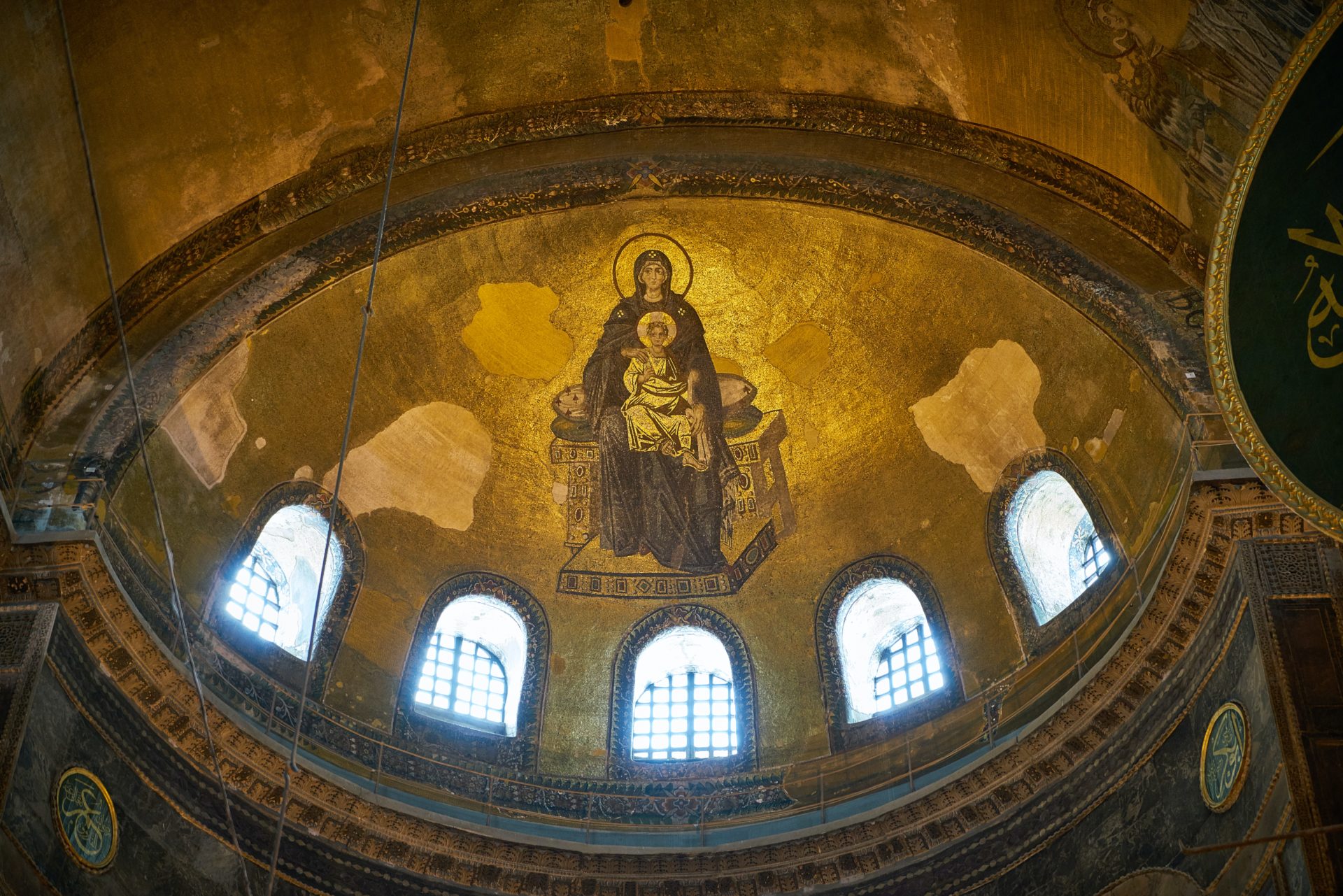
Mosaic of Mary and Jesus in the apse of Hagia Sophia in Istanbul.
Photo by engin akyurt on Unsplash
Virgin, victim, or … Pondering Mary of Nazareth
While recent years have seen a backlash against the traditional view of Mary with writers painting her an unwed mother or rape victim, the nativity stories are so conflated with church tradition, both those who embrace the story and those who reject it obscure the power of the narrative. Whether we decorate her story with glitter framing her as the paragon of purity or deface it, framing her as a powerless pawn, we extinguish her agency and demean her contribution. And we are the less for it.
Traditional teaching has removed Mary from her historical and cultural context, so some background is in order. There were two stages to marriage in first century Judaism. Betrothal was a business arrangement established by a bride price paid to the bride’s family. Betrothal lasted at least a year during which the couple were considered married. Processional to the groom’s home and a wedding feast followed when the bride came of age. Consummation was required by the 4th day of the feast to allow for legal action should the bride be found to be impure.
Rather than being passively obedient or overpowered, Mary was a person of agency who was willing to violate the rules. She questioned Gabriel, pondered the information, and made the choice to take on this world-changing role (Luke 1:38). First century Judaism forbade a woman to leave her home without permission from her father if she were single or her husband if she were married. A pregnant woman was required to remain in seclusion for the first five months of pregnancy. Yet Mary set off to visit Elizabeth (Luke 1:39-40). She did not go into seclusion but left in haste, likely without permission. Even with its high personal cost, she celebrated her calling and the dream of dismantled social structures: “He has performed mighty deeds with his arm; he has scattered those who are proud in their inmost thoughts. He has brought down rulers from their thrones but has lifted up the humble. He has filled the hungry with good things but has sent the rich away empty” (Luke 1:51-53). Mary was a religious and political rule-breaker. But what about Joseph?
If an unmarried woman bore a child and identified the father, the two were required to marry immediately without the option of divorce. Joseph is called diakos, which is Greek for “righteous” and yet in violation of the law, he decided to divorce Mary secretly to avoid exposing her to public disgrace and stoning (Matthew 1:19). Choosing to accept Mary as his wife was the same as saying he was responsible for her pregnancy and worthy of the penalty of immediate marriage without option of divorce. He further violated the marriage consummation rule, waiting until Mary gave birth. So, Jesus was raised by a couple of political and religious rule breakers; ideal parents for someone who would violate Sabbath and purity laws and ultimately be executed as a political criminal.
Scripture revealed to me a God of radical love who changes lives and reorders human structures. I rarely saw that God embraced within traditional Christian institutions. I find myself pondering Mary’s story and my own. I was moved to tears recently by the question placed on Mary’s lips in “Breath of Heaven,” a popular Christmas song:
“Do you wonder as you watch my face if a wiser one should have had my place?”
I wonder if my vocation weren’t a mistake. Were there not much better options for me? Weren’t others better suited for the ministry roles I took on? Did God, whom I’d hoped to serve, regret my choice? Perhaps such questions never crossed Mary’s mind. However, Luke (2:10-19) tells us that she pondered the shepherds’ message of “good news that will cause great joy for all the people.” I can’t help but imagine that as it all unfolded, there were times she wondered too.
The views expressed are those of the author and not necessarily those of American Baptist Home Mission Societies.


